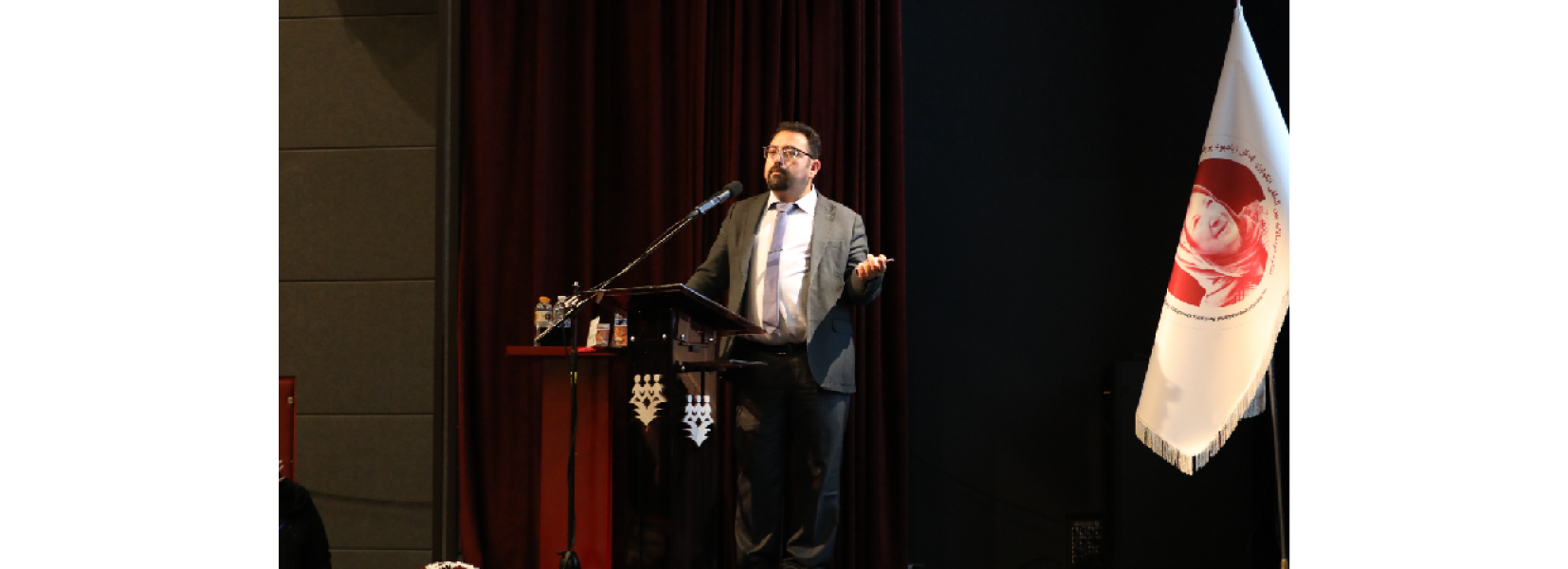
Pediatric Cancer: Multidisciplinary Approaches Unveil Challenges and Opportunities
- 10 June 24
- 770 revirew
- 0 comment
During the “Biennial International Congress of Pediatric Oncology in Memory of Professor Parvaneh Vossough”, Dr. Morteza Ashrafi, as the head of MAHAK Pediatric Comprehensive Research Center, highlighted the significance of applying multidisciplinary approaches for common pediatric brain tumors.
This collaborative approach entails the coordination of diverse medical specialties to deliver comprehensive support for pediatric cancer patients. By integrating disciplines such as neurology, oncology, and surgery, the treatment of brain tumors can be enhanced. This leads the treatment of brain tumors not only more efficient but also tailored to each patient’s specific needs. MAHAK, as the leading pediatric cancer treatment center in Iran, has implemented the multidisciplinary approaches in treating common childhood brain tumors for quite some time.
Dr. Ashrafi explained that the brain tumors account for 20% of common childhood tumors emphasizing that they are the second most common solid tumors among children and the primary cause of mortality in pediatric oncology. He mentioned that the global 80% survival rate for childhood cancer obtains through multidisciplinary treatment approaches.
He highlighted the significance of multidisciplinary approaches in treating pediatric brain tumors resulting in increase of patients’ life expectancy and satisfaction as well as development of research-based curing protocols.
Furthermore, Dr. Ashrafi underscored the importance of rehabilitation services for pediatric brain tumor survivors. He accentuated the necessity of post-treatment services to deal with the children’s physical, cognitive, and emotional challenges to give them the better life after the treatment procedure.
According to Dr. Ashrafi, in case of implementing multidisciplinary approaches in neuro-oncology, the curing team requires experts with various disciplines including surgeons, radiologists, oncologists, hematologists, neuropathologists, psychologists, and social workers, and. Dr. Ashrafi said that multidisciplinary approaches require securing financial resources, allocating sufficient time, and having access to scientific-research sources. Likewise, it is essential to conduct multidisciplinary sessions in a structured and systematic way, where patients’ medical annals are thoroughly reviewed.
Dr. Ashrafi addressed the importance of palliative care for children with lower chances of improvement in brain tumors. He also talked about the challenges of therapeutic multidisciplinary approaches and the imperative requirement for developing a great teamwork among the health professionals with different specialized fields
He finished his speech by saying: the multidisciplinary approaches not only advances the quality of support services for children and extends their life expectancy, but also increases parental satisfaction and enables healthcare professionals to utilize the latest therapeutic protocols. I hope that the pediatric cancer treatment is majorly considered to be performed by employing multidisciplinary approaches throughout the country.
